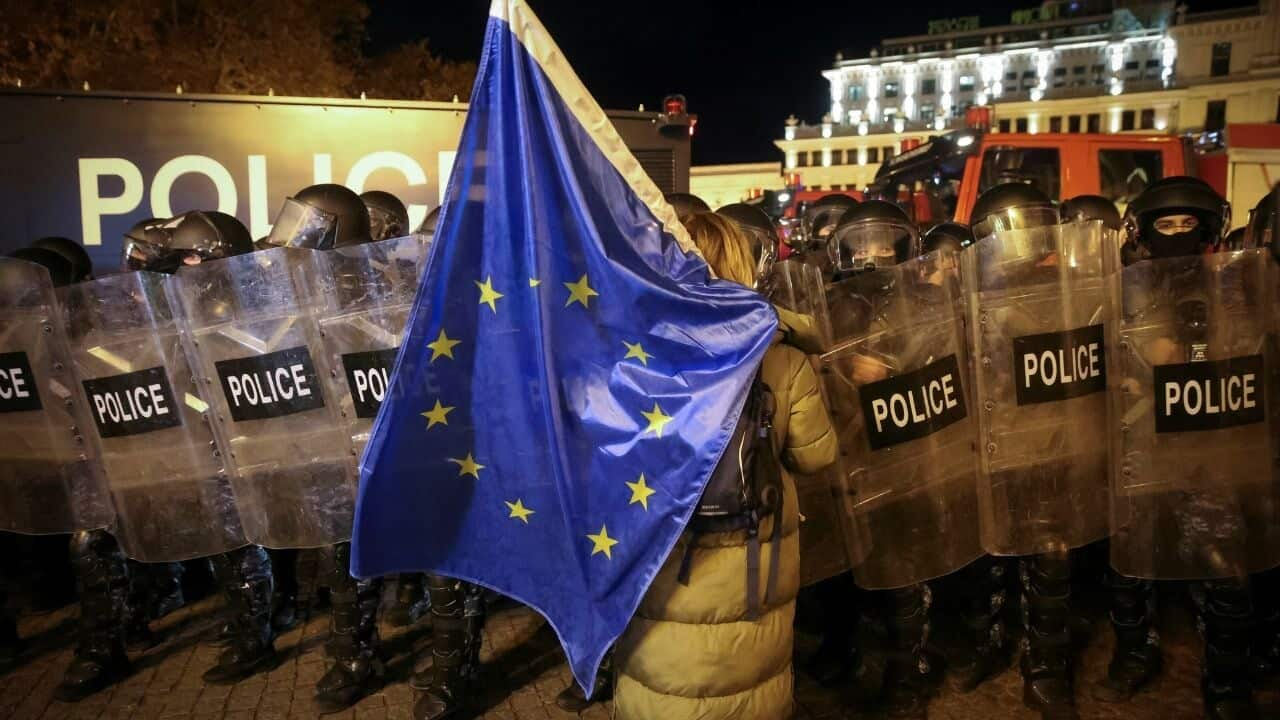
Georgia rocked by fierce protests after government suspends EU talks
What's the story
Mass protests have erupted in Georgia after the government decided to suspend its bid to join the European Union (EU) until 2028. The ruling Georgian Dream party announced the decision on Thursday, after a controversial win in last month's parliamentary election, which observers said was fraudulent. Protesters have taken to the streets in Tbilisi, chanting "Russian slaves" at police officers, who responded with water cannons and tear gas.
Escalating unrest
Protests intensify, police accused of targeting journalists
The protests continued nationwide on Friday night, with thousands waving Georgian and EU flags. Georgia's pro-Western president, Salome Zourabichvili, accused the police of targeting journalists and political leaders. She also posted videos of the rallies on social media, noting an increase in protester numbers from the previous night and condemning what she described as "brutal and disproportionate attacks on the Georgian people and media."
Political divide
Election results and EU stance spark national discontent
The protests are related to the ongoing fallout from the country's October 26 parliamentary election results, which many perceived as a decision to either align with Russia or the West. The EU granted Georgia candidate status in December 2023 but has stated that many laws passed by Georgian Dream since then, including restrictions on "foreign agents" and LGBTQ rights, are impediments to EU membership. Foreign agents is a label for organizations that receive over 20% of their funding from abroad.
Policy shift
Georgian Dream's shift toward Moscow-style governance
Critics claim Georgian Dream is growing more authoritarian and pro-Moscow. The party was established by Bidzina Ivanishvili, a billionaire with connections to Russia. On Thursday, the European Parliament rejected the election result and called for a re-run within a year. Prime Minister Irakli Kobakhidze, however, defended last month's vote as a vote for traditional values over "immoral propaganda." He also accused some EU politicians of "blackmail and manipulation" and declared Georgia would reject EU budgetary grants until 2028.